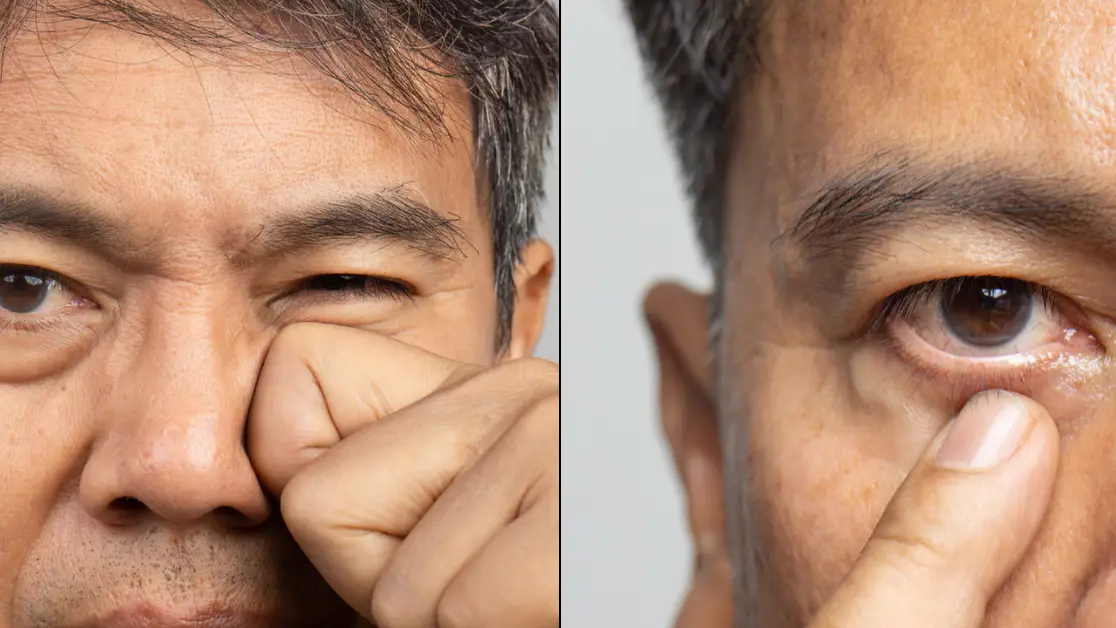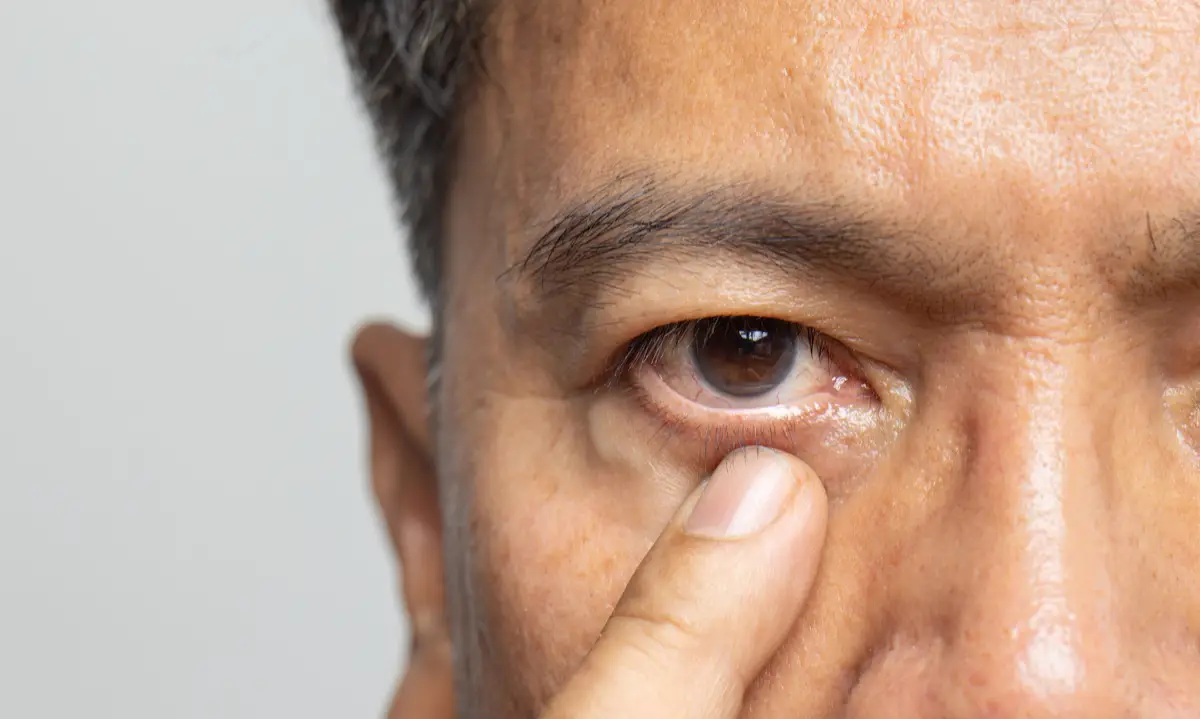
Most people get a 'twitch' in their eye from time to time and there's nothing more annoying - especially when it looks like you're winking at people on your way to work.
Not ideal.
The distracting flickering sensation can last for weeks on end and even affect your vision.
Advert
Twitches can affect any part of the body but twitches in the eyes or legs are particularly common.
According to the NHS, while they're really irritating, these twitches are rarely anything serious.
Most commonly they're a symptom of being stressed or anxious but other things such as bright lights, fatigue, caffeine, alcohol, eye irritation and certain medications can all bring them about.
Unfortunately, there's no real treatment for a twitch, but most stop in a few days or weeks.
In the meantime, the NHS recommends getting plenty of rest, finding ways to relax, stretch and massage tense/cramped muscles and try not to worry about the twitch itself, as it can make it even worse.

Dr Cornelius Rene, a consultant oculoplastic surgeon at Addenbrooke's Hospital in Cambridge, explained why we get the irritating sensation to The Guardian.
"There are several reasons why a twitch in the eyelid can happen.
"But the commonest cause is something called benign essential blepharospasm, or BEB, which is an uncontrollable spasm of the eyelid, for which there is often no underlying cause."
He went on to summarise that if it is just one eyelid twitching, then it is called myokymia, a benign condition that, luckily, gets better by itself - usually only lasting a few days up to a week.
However, suppose it has been persisting for over two weeks?
In that case, it is recommended that you see a doctor who can refer you to a specialist or examine some potential medicines you may be taking that could be causing the condition to worsen.
But if it stays for weeks, it could signify something more severe.

Dr Luke Powles, associate clinical director at Bupa Health Clinics, told the Guardian: "If you experience a persistent twitch that lingers for more than two weeks and notice any unusual changes in your eye’s appearance or sensation, it may be indicative of an underlying issue.
"These might be early indicators of multiple sclerosis or Parkinson’s disease, a progressive brain disorder that can lead to muscle stiffness and tension, making movements and facial expressions more challenging."
You should book an appointment with your GP if your twitch lasts more than two weeks, occurs in more than one place, the affected area feels week or stiff, or you think it may be caused by a medication.
Topics: Health, NHS, Mental Health
